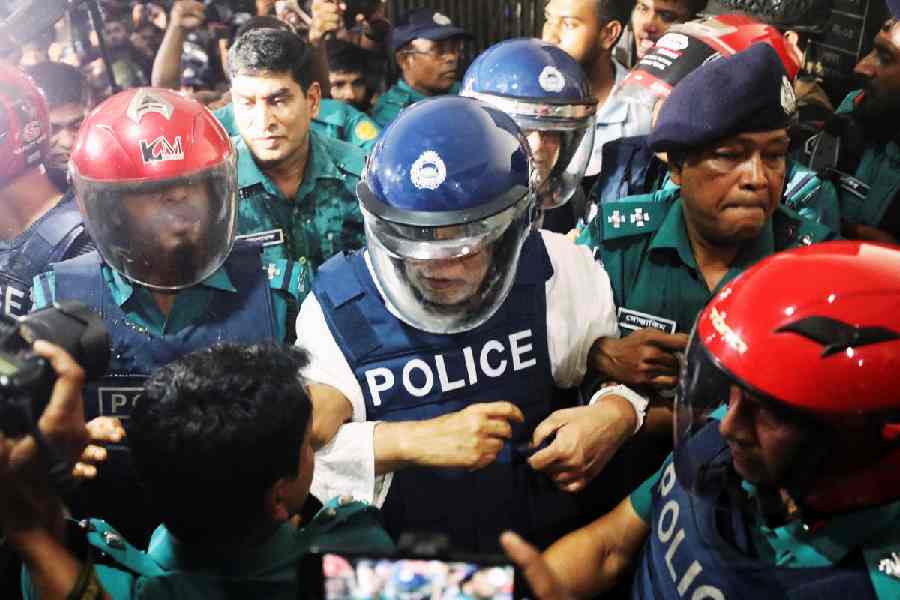Diplomats from several western countries and Japan met informally in Dhaka on Tuesday and expressed concerns about the attacks on minorities and the apparent lawlessness in Bangladesh since the fall of the Sheikh Hasina regime on August 5.
“It was an informal meeting held at the Canadian high commission... Representatives of most of the European Union countries, the US, Australia and Japan were present and they took stock of the present situation in Bangladesh,” a source said.
Some of the primary concerns of the diplomats representing various countries revolved around their safety and security in view of the apparent lawlessness in the country. Similar issues cropped up when Touhid Hossain, foreign affairs adviser to Muhammad Yunus, met the foreign envoys earlier this week and conveyed the government’s resolve to ensure return of normalcy at the earliest.
The reports on attack on minorities in Bangladesh, which triggered unprecedented street protests by the Hindus, Christians and Buddhists, was discussed and the diplomats expressed their hope that the interim government would take the necessary steps to prevent such incidents.
Though the diplomats were broadly in agreement on their assessment of ground realities, the views of the US and some of the EU countries were “slightly different” when they discussed the manner in which the regime change took place in Bangladesh, said the source.
“Some EU diplomats wondered whether the regime change was constitutionally acceptable,” said the source, adding that this concern was the primary reason behind most countries “wishing” Yunus instead of “welcoming” him.
According to the source, at one point during the meeting, the US representative was urged to respond to a purported comment from Hasina that her ouster from office was the result of her refusal to offer strategically important St Martin’s island to the US. The US representative apparently laughed off and swatted away the question. The US authorities have already clarified that it respects the sovereignty of Bangladesh and has no intention of acquiring the island or intervening in the country’s internal political matters.
Though the meeting ended with the hope that the government would deliver on its promises, there is little doubt that Bangladesh under Yunus would remain under the scanner for quite some time.
Over 80 per cent of Bangladesh’s readymade garment exports, a major source of foreign exchange for the country, are directed towards the western countries, which lay special emphasis on factors like state of democracy and treatment of vulnerable sections, like the minorities. Similarly, Japan, which is a major trading partner and an important source of foreign direct investment for Bangladesh, attaches importance on factors beyond economic interests.
As Yunus’s main challenge is to revive the economy — in the backdrop of dwindling foreign exchange reserves, rising unemployment and runaway inflation — there is little doubt that the interim government would have to live up to the expectations of the western Bloc and countries like Japan.
The fact that the relationship with India, the biggest exporter of essential items to Bangladesh, will also be important became clear on a day the Indian ambassador, Pranay Verma, called on Hossain. The Bangladeshi foreign ministry said that Hossain told the Indian envoy that the government is committed to ensure a transition to an inclusive and pluralistic democracy.
Some of the thornier issues — like killings on the border and the Teesta water sharing agreement — came up during the meeting at which Hossain flagged concerns in Bangladesh about the “highly exaggerated media campaign about happenings in Bangladesh” and recent statements from Hasina in India.
Amid claims from the Yunus regime that the reports on attacks on minorities and their properties were “exaggerated” — a stand toed by Bangladesh’s mainstream media, which hardly reported the alleged assaults on Hindus, Christians and Buddhists — the ancestral home of filmmaker Ritwik Kumar Ghatak in Rajshahi was demolished on Wednesday.











